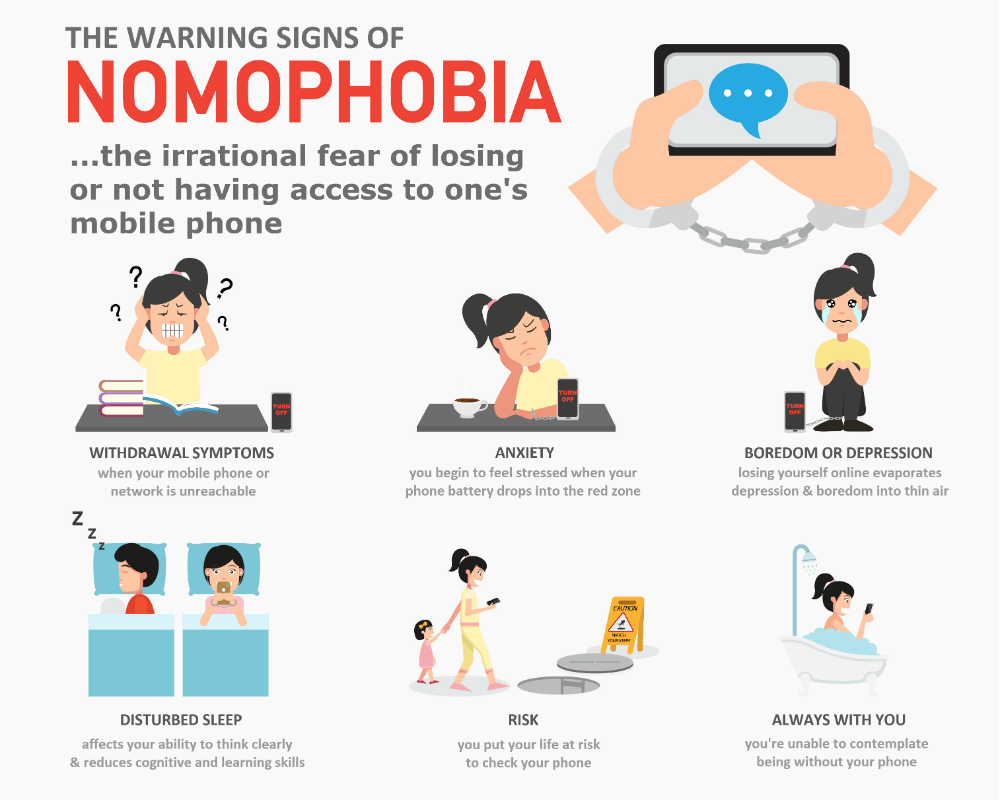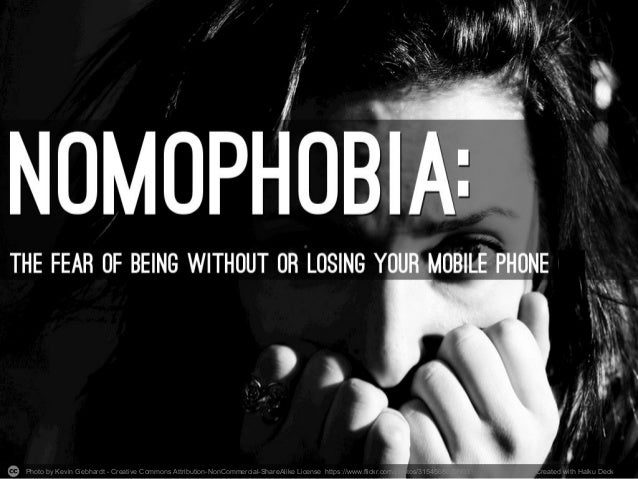Nomophobia is the fear of being without your mobile phone or losing your signal

Nomophobia: The Fear of Being Without Your Mobile Phone

In today’s digital age, our mobile phones have become an inseparable part of our lives. We rely on them for communication, social interaction, entertainment, and even navigation. But what happens when we are separated from our beloved devices? A new term has emerged to describe this anxiety-inducing fear - Nomophobia.
What is Nomophobia?
Nomophobia, derived from the phrase “no mobile phone phobia,” refers to the fear of being without your mobile phone or losing your signal. It is a psychological condition that leads individuals to experience distress or apprehension when they are unable to access or use their mobile devices.

Symptoms of Nomophobia
Many of us may have experienced some form of anxiety when we forget our phones at home or notice a weak signal. However, for those with nomophobia, these feelings escalate to a whole new level. These individuals may exhibit various signs and symptoms, including:
Sweating and Trembling: A rapid increase in heart rate, sweaty palms, and trembling are common physical indicators of nomophobia when separated from one’s phone.
Heightened Anxiety: Extreme anxiety and panic attacks may occur when unable to access one’s mobile phone or when faced with the prospect of losing connectivity.
Obsessive Need for Connectivity: Nomophobic individuals often obsessively check their phones for missed calls, messages, or notifications even when unnecessary.
Fear of Missing Out: The fear of missing out (FOMO) on important events, social interactions, or news while disconnected from their mobile devices is a prevalent characteristic of nomophobia.
Inability to Switch Off: These individuals find it difficult to disconnect from their phones, even during important meetings, social gatherings, or leisure activities.
Dependency on Digital Devices: Nomophobia leads to a strong reliance on mobile phones, with individuals feeling incomplete or anxious without their device by their side.
Impact and Coping Strategies
The rise of nomophobia has raised concerns about the negative impact excessive mobile phone usage can have on individuals’ mental well-being. To overcome this fear and strike a healthier balance with technology, several coping strategies can be implemented:
Digital Detox: Periodically disconnecting from your mobile phone and engaging in offline activities can help reduce anxiety and regain a sense of control.
Setting Boundaries: Establishing designated phone-free times or areas can help create a healthy boundary between your mobile device and personal life.
Seeking Support: If nomophobia significantly affects your daily life and productivity, consider seeking professional help from therapists or support groups specializing in technology addiction.
Mindfulness Techniques: Practicing mindfulness exercises, such as meditation or deep breathing, can calm your mind and alleviate nomophobia-related anxiety.
In conclusion, nomophobia is a growing concern in today’s smartphone-driven world. Recognizing the symptoms and implementing strategies to maintain a healthy relationship with our mobile devices is crucial. By consciously managing our dependence on technology, we can overcome nomophobia and enjoy a more balanced and fulfilling life.
Source: Wikipedia
Tags
Share
Related Posts
Quick Links
Legal Stuff

